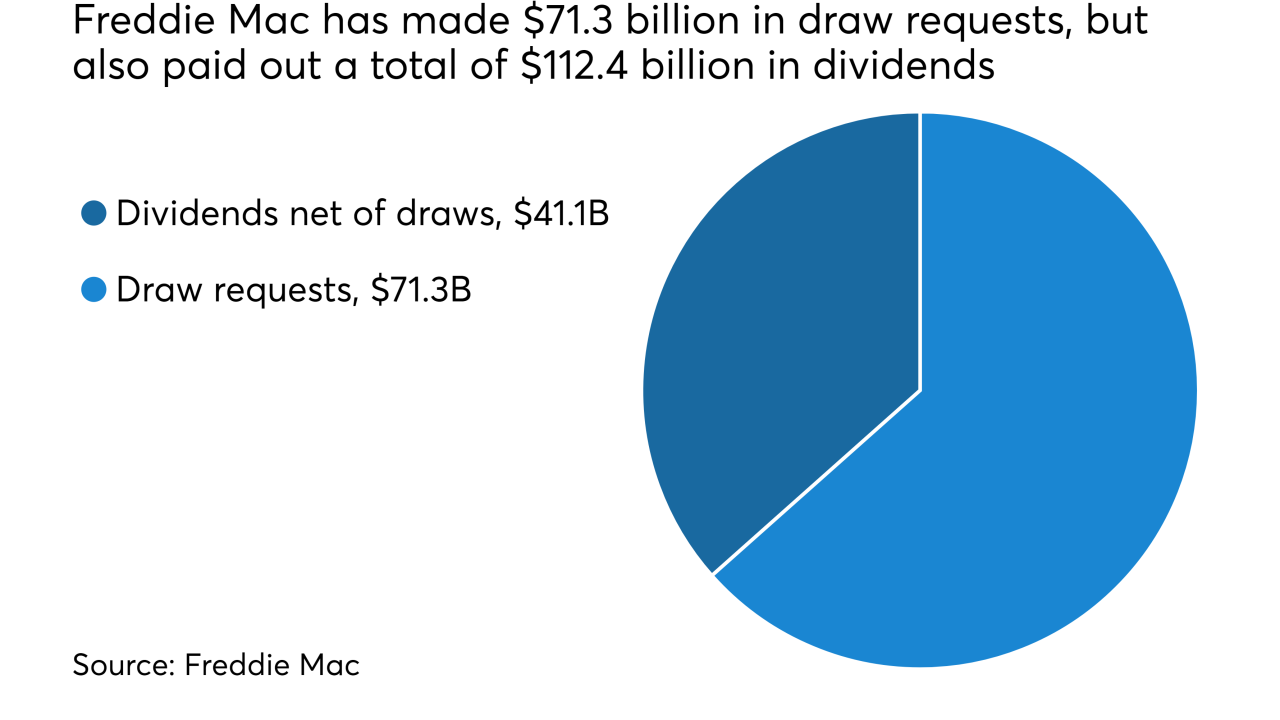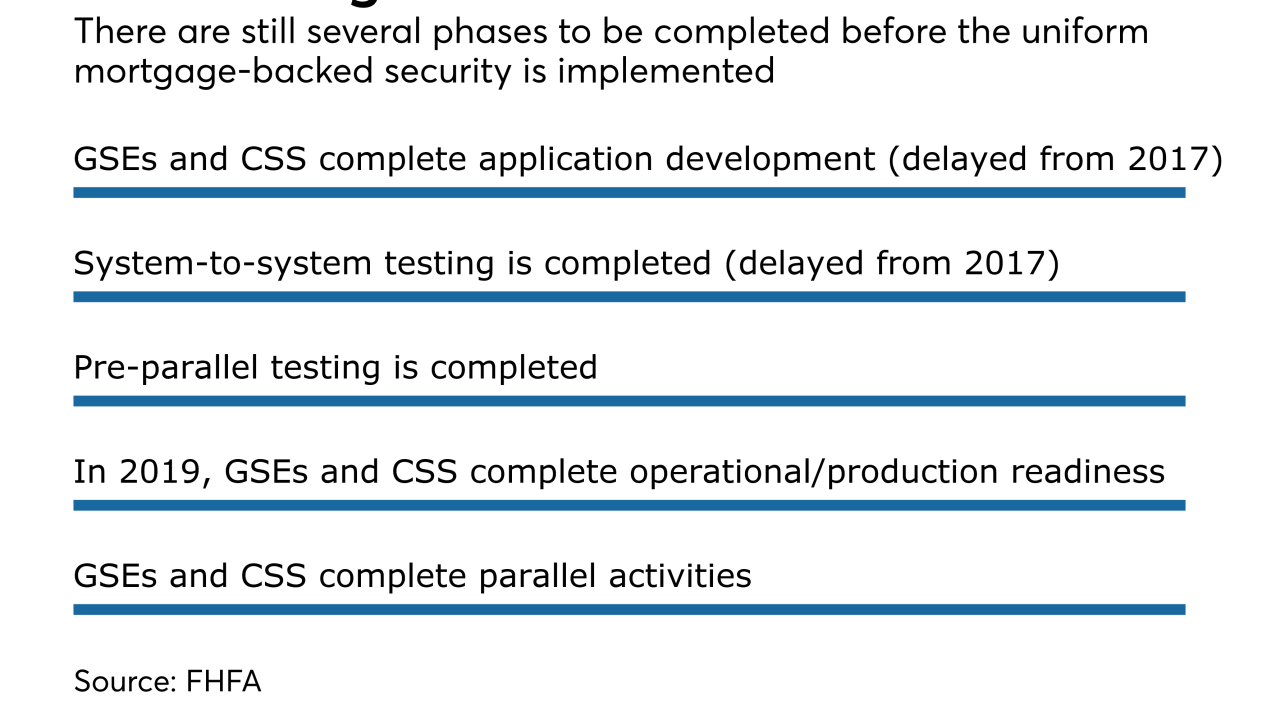-
If Freddie Mac's credit-risk transfer activities continue to grow, mortgage lenders could eventually see a reduction in the guarantee fees they pay to the government-sponsored enterprise, according to CEO Donald Layton.
May 1 -
As inflation fears put upward pressure on 10-year Treasury bonds and mortgage rates nationally, borrowers could start to take more notice of what lenders are charging them locally.
February 20 -
Freddie Mac posted a fourth-quarter net loss of $3.3 billion and will request $312 million from the Treasury after recent tax reform legislation forced it to write down the value of deferred tax assets.
February 15 -
Royal Bank of Scotland Chief Executive Officer Ross McEwan said the likelihood is waning that the lender will settle a U.S. mortgage-bond probe before the end of the year as he'd hoped, though it's well-capitalized to handle a settlement.
December 8 -
The U.S. is taking steps to stamp out the practice of servicemembers and veterans being pressured into taking mortgages they don't need, a move that officials say will lower consumer costs and could lead to financial penalties for lenders.
December 7 -
Testing of the common securitization platform is taking longer than expected, but the Federal Housing Finance Agency said it won't delay the 2019 launch of Fannie Mae and Freddie Mac's new single "uniform mortgage-backed security."
December 4 -
Fannie Mae servicers are facing pressure from the recent hurricanes, but so far are bearing up under the strain.
November 2 -
Fed economists are suggesting a new mortgage product that would allow home buyers to build equity faster and give banks incentive to profitably hold the loans in portfolio.
September 13 -
As long as Fannie Mae and Freddie Mac exist, they must have adequate capital so taxpayers will never again be compelled to help them meet their financial obligations.
June 9 -
Freddie Mac's serious delinquency rate dropped below 1% for the first time since 2008, lending credence to its efforts to expand credit access.
May 2









